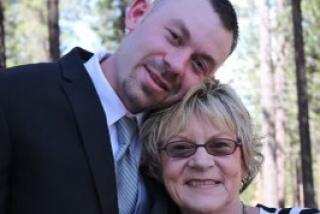$2 Million Sought for False AIDS Diagnosis : Health: Man files claim after undergoing extensive treatment for six years. Doctors told him he had disease without performing HIV test, suit says.
SAN FRANCISCO — For six years, John Kuivenhoven lived in the nether world of AIDS. He stopped working, suffered the painful side effects of experimental drugs and waited to die.
Now his doctors say he never had the disease.
“It was as if I had been in prison for six years and the warden came up to me and said: ‘Well, buddy, we made a mistake--go and live your life,’ ” Kuivenhoven said. “I was more angry than happy.”
Kuivenhoven, 53, filed a $2-million claim this week against the Kaiser Permanente health maintenance organization. He charges that he underwent sustained treatment for full-blown AIDS without receiving an HIV test.
The claim seeks recovery of lost wages, medical costs, plus damages for pain and suffering.
Kaiser spokeswoman Kirsten Cherry said she could not comment until an investigation is completed. Kaiser is involved in arbitration with two other patients who charge that they have been improperly found to have AIDS, Cherry said.
Kuivenhoven said he checked into a San Jose hospital affiliated with Kaiser in 1986 with respiratory problems and doctors told him he had pneumocystis pneumonia, considered a sure sign of AIDS at the time.
He underwent tests but was not given an exam to determine the presence of HIV, the virus associated with AIDS, said Paul Wotman, Kuivenhoven’s attorney. As a homosexual male, Kuivenhoven is in a high-risk group for the disease.
Under doctors’ orders, Kuivenhoven quit his job and lives on government welfare and disability benefits of $600 a month, Wotman said.
In 1986, he began taking the drug AZT in high doses, which gave him a chronic headache, high blood pressure and peripheral neuropathy. He is battling an addiction to Darvon and other prescription drugs, Wotman said.
More to Read
Sign up for Essential California
The most important California stories and recommendations in your inbox every morning.
You may occasionally receive promotional content from the Los Angeles Times.










